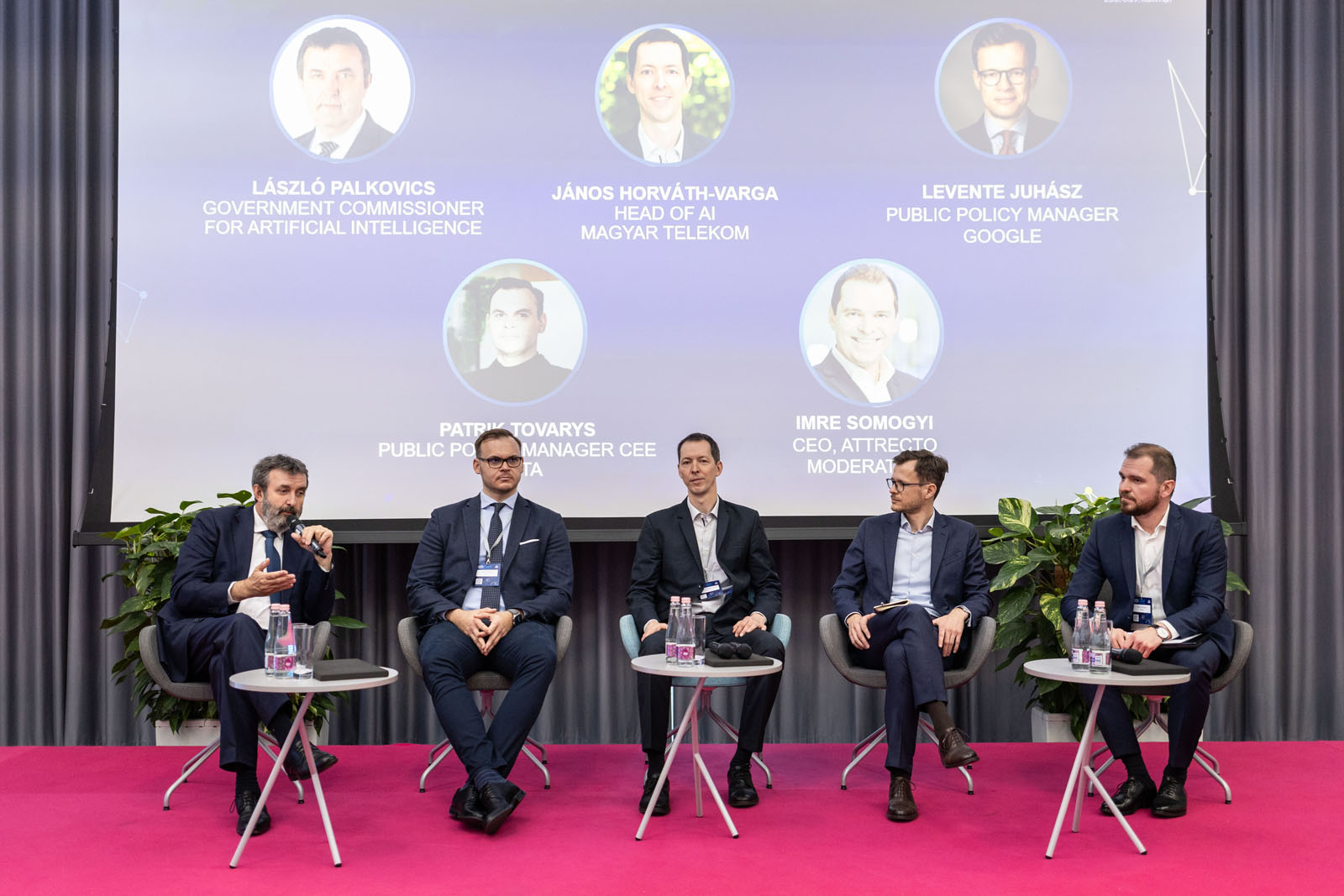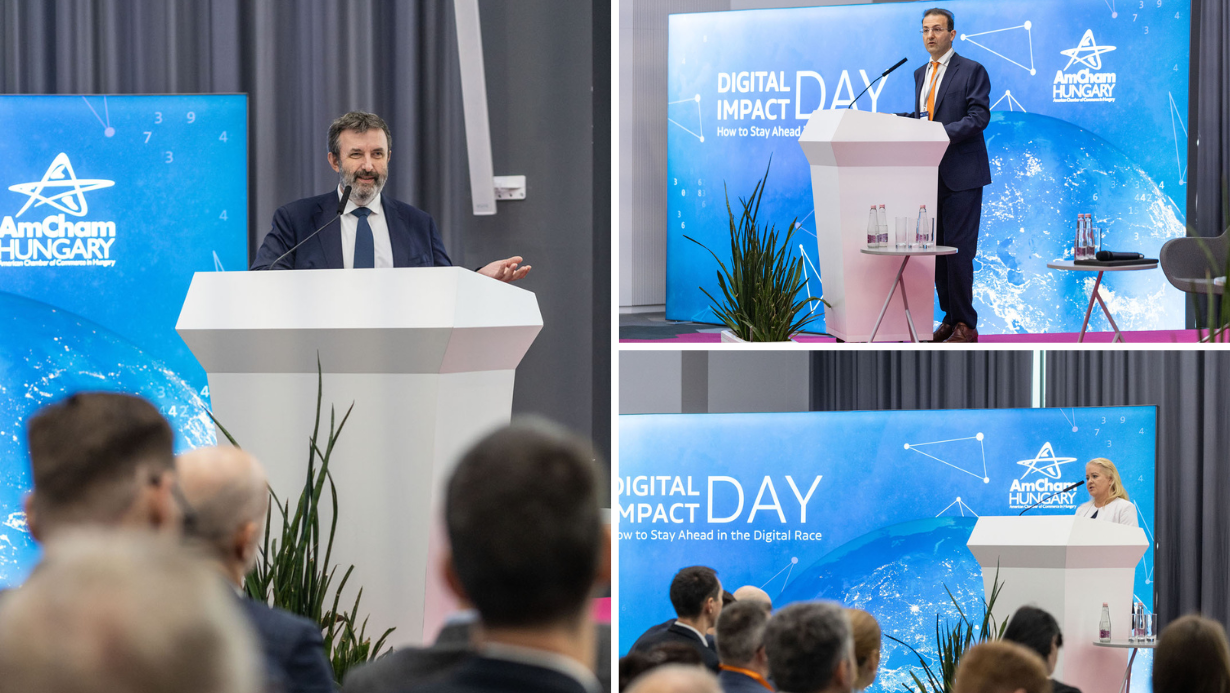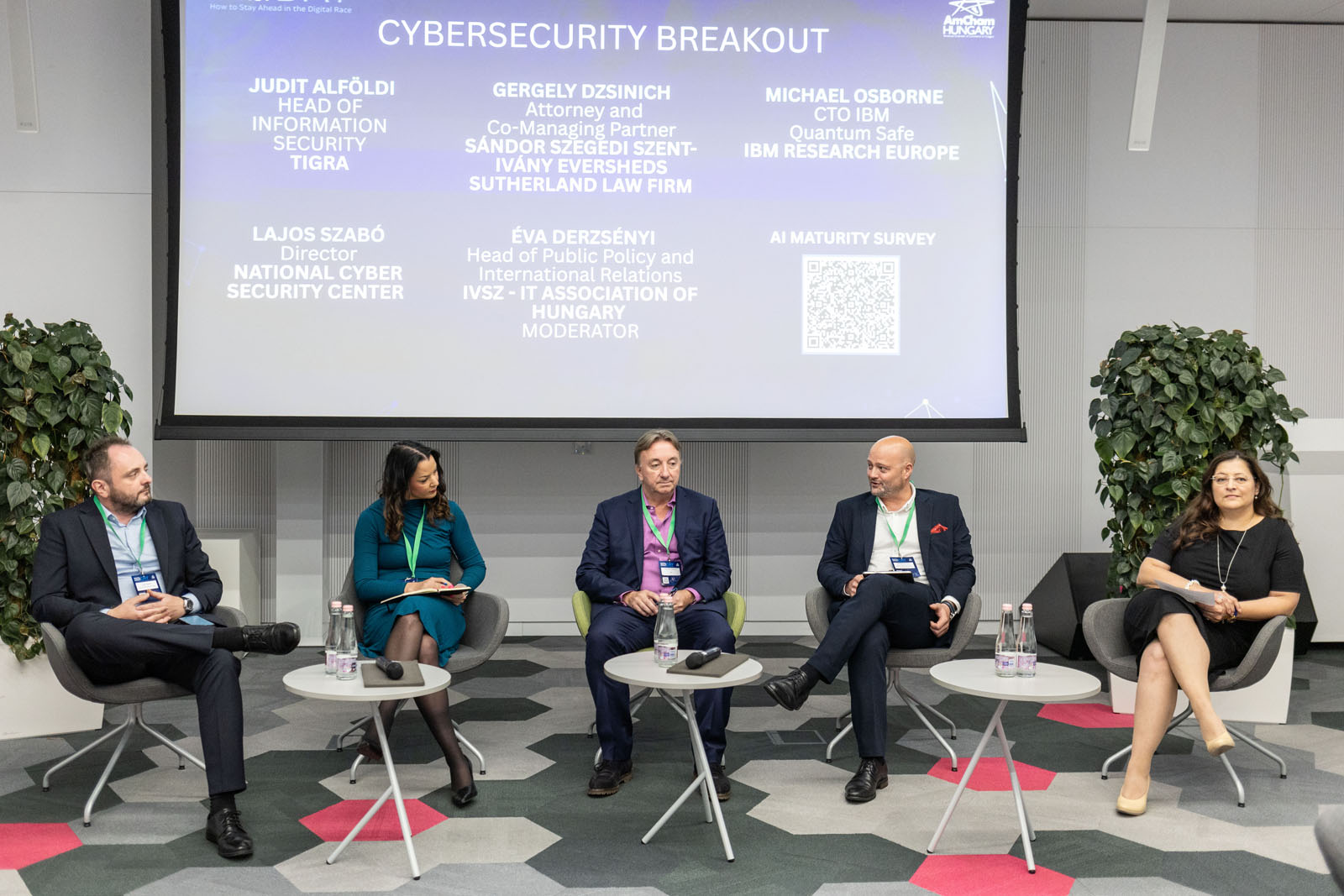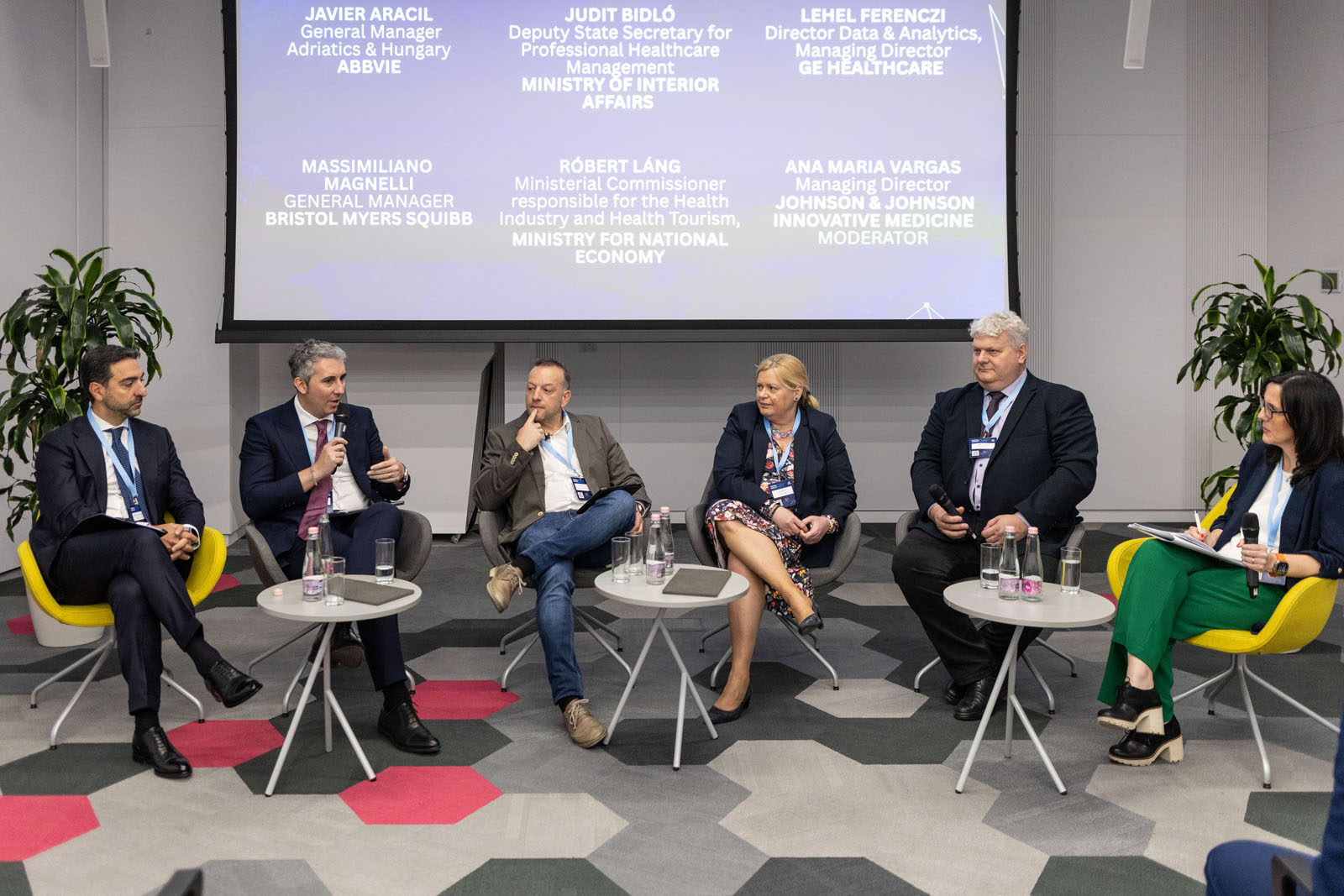What does it take for businesses to stay ahead in the digital race? That was the central question AmCham Hungary addressed at its Digital Impact Day, where leaders from business, government, and technology came together to explore how digitalization and AI are transforming the global economy—and what it means for long-term competitiveness.
The event opened with remarks from Írisz Lippai-Nagy, CEO of AmCham Hungary, and Ákos Janza, President of AmCham Hungary, alongside László Kónya, Managing Director of Deutsche Telekom IT Solutions Hungary. Their welcome set the stage for a compelling keynote by Krisztián Orbán, public intellectual, who examined the digital future of warfare and how evolving global power structures are reshaping our understanding of security and resilience.
Government Commissioner for AI László Palkovics shared insights into Hungary’s AI strategy, followed by a dynamic roundtable discussion moderated by Imre Somogyi (Attrecto), with participants János Horváth-Varga (Magyar Telekom), Levente Juhász (Google), and Patrik Tovarys (Meta), offering perspectives on how tech leaders are navigating the AI-driven transformation.

The program continued with a presentation by Andrea Simpkins on drone detection and protection technology developed by T-Systems International, used during the 2024 European Championships to ensure event safety.

Breakout Sessions
The event concluded with three engaging breakout sessions, each addressing a key area where digitalization and AI are having significant impact.
The Future of Work
This session explored how HR can drive AI transformation while preserving human value. Panelists emphasized the importance of tailored AI literacy, scalable upskilling efforts, and forward-looking workforce strategies, and proactive strategies to prepare for long-term changes in work.

Cybersecurity & Data Privacy
At the cybersecurity roundtable, we explored the evolving threat landscape, the implementation of NIS2 in Hungary, and the practical challenges of the new Cybersecurity Act. We discussed incident response coordination, the role of education and awareness, and how organizations can build resilience through preparedness. We also examined the future impact of AI and quantum technologies on both cyber defense and threat actors.

Digital Health
The session focused on how digital technologies and high-quality health data can lead to a more efficient and patient-centered healthcare ecosystem. Advancing these goals requires close collaboration between public and private healthcare stakeholders, along with supportive government policies. The industry plays a key role in contributing expertise, sharing best practices, identifying system gaps, and helping shape data standards and the usability of healthcare data. Participants emphasized the importance of continued collaboration between all stakeholders within the field.

At AmCham, we believe that staying at the forefront of technological innovation—including advancements in digital technologies—is essential to long-term competitiveness. Digitalization and innovation are therefore high on our agenda. We have recently launched our Digital Working Group to provide a dedicated platform where members can engage on these critical topics, share best practices, and shape common goals. As we prepare our new Policy Agenda—the strategic guideline for our advocacy activities for the period 2026–2030—we plan to place a focus on digital transformation, as it is both a key priority for our members and an inevitable force shaping the future of business. In this effort, we count on continued dialogue with both the business community and policymakers